Symbolics keyboard PN 365407
Symbolics keyboard PN 365407 is used in Symbolics 36xx series lisp machines , around 1985. 〔see Lisp Machine Keyboards ⌨〕
This model comes after the Symbolics Keyboard PN 364000 , and is compatible to it.
There are several version of PN 365407: Revision A, Revision C. (is there a revision B?) Revision C has LEDs in the Caps Lock and Mode Lock keys, and uses a different key switch.
Revision A
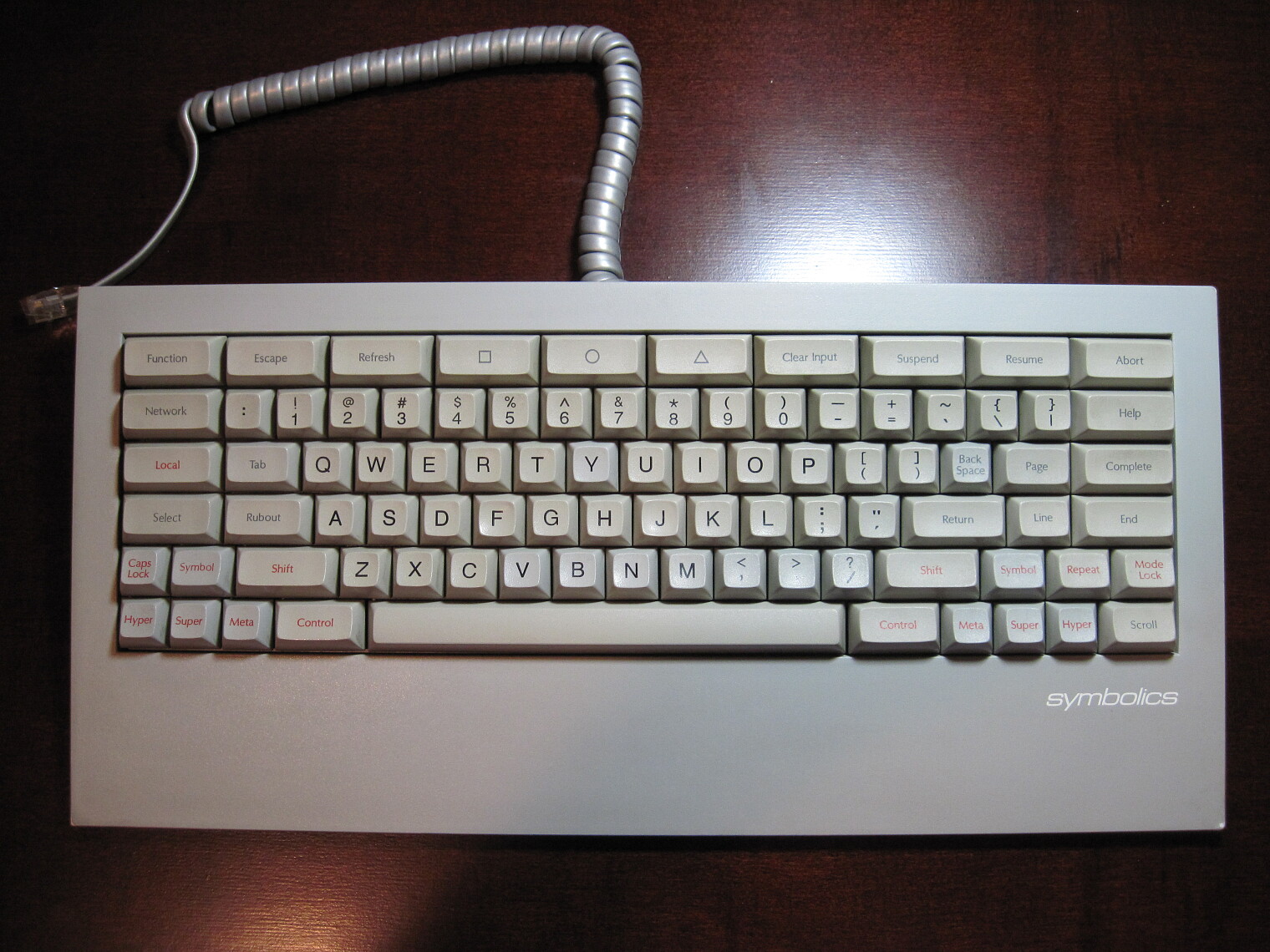
Note the dedicated parenthesis keys.
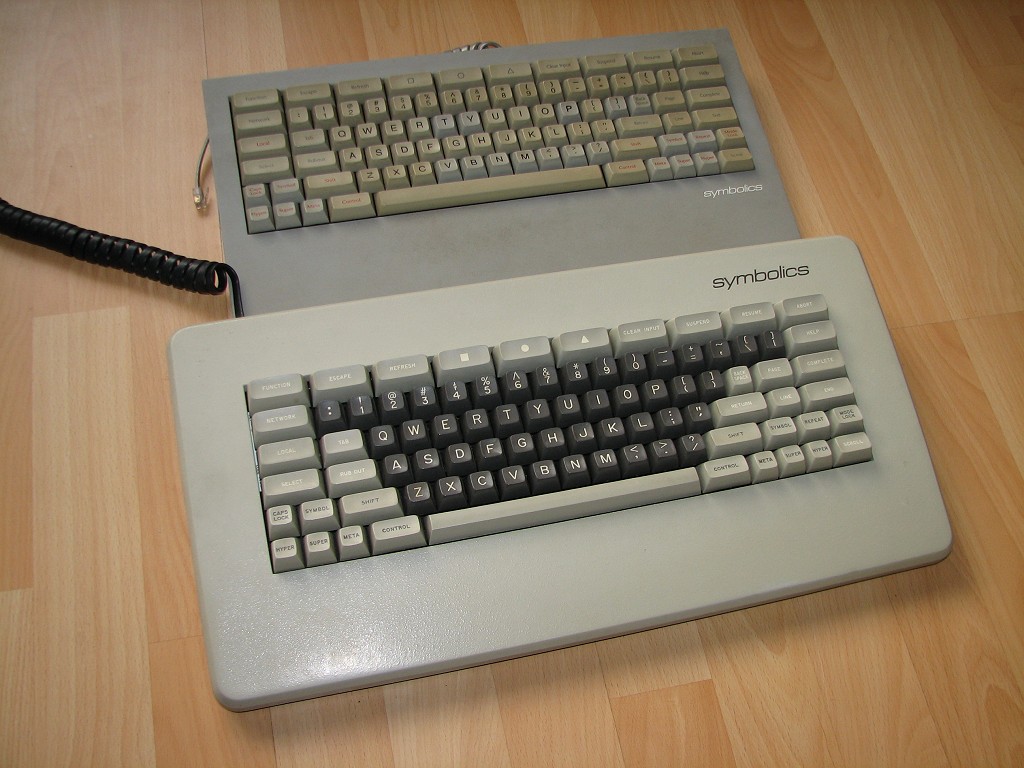
bottom: Symbolics Keyboard PN 364000
〔image source https://deskthority.net/keyboards-f2/the-lisp-keyboards-t98.html, by webwit〕
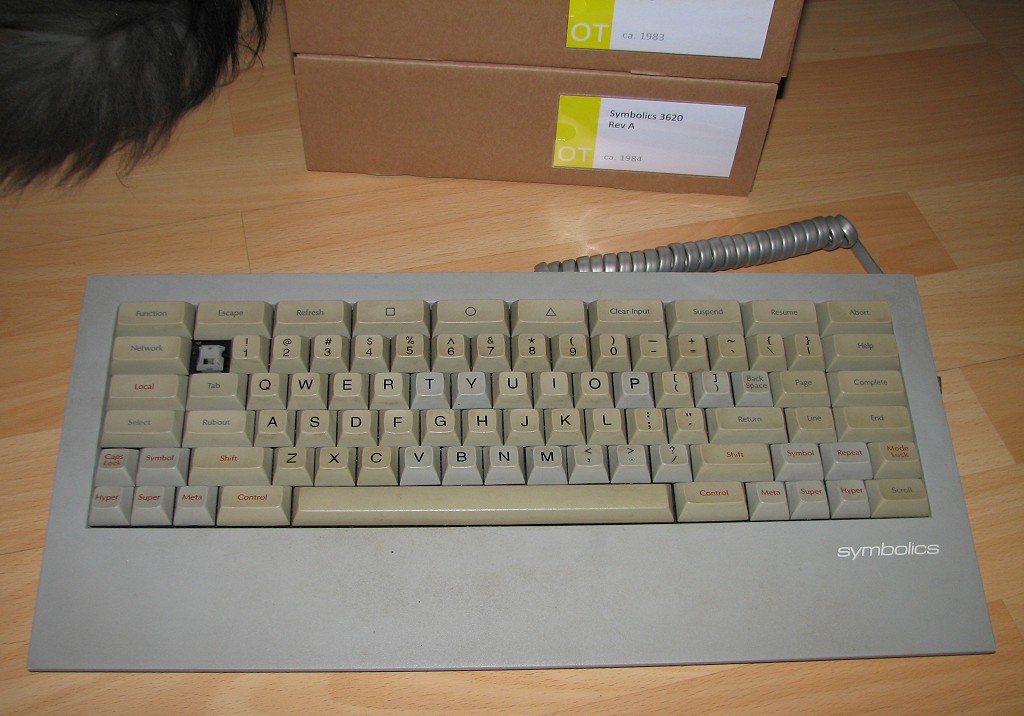
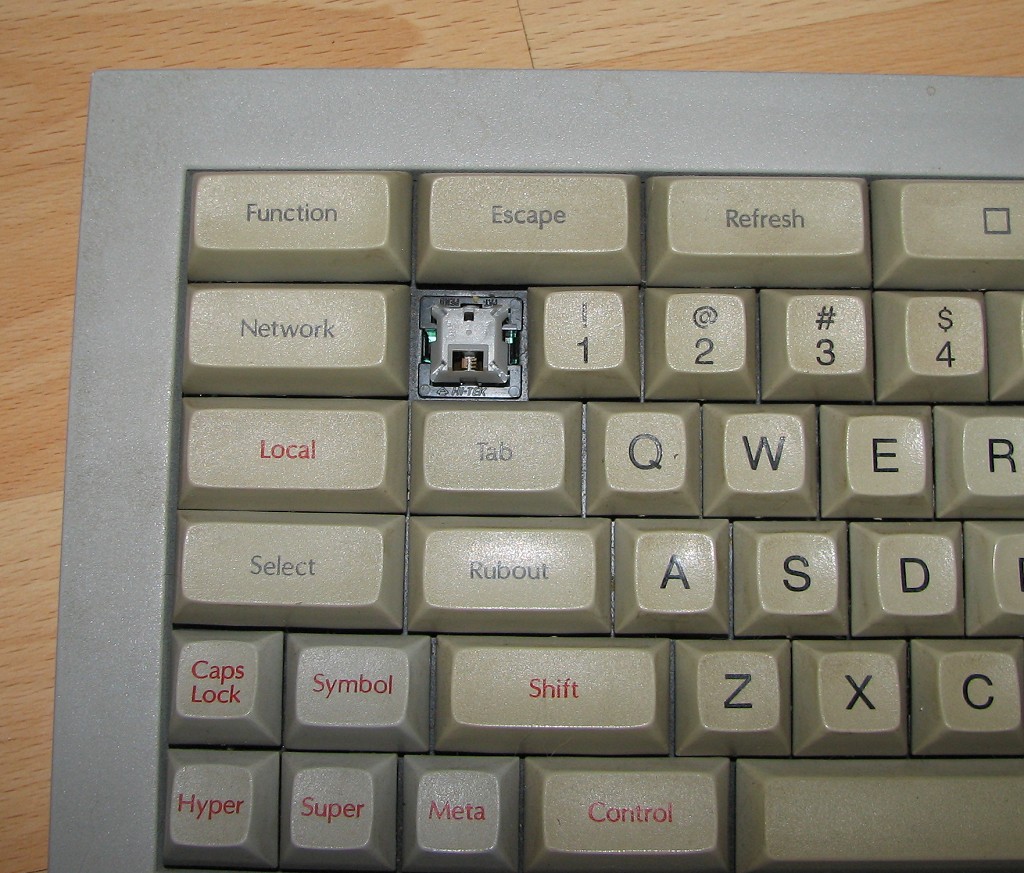
HiTek 725 key switch
Symbolics PN 365407 Revision A, uses HiTek 725 switch.
Symbolics keyboard PN 365407 Rev C
Rub Out key
2017-05-18 ScottBurson wrote
On an ASR33 Teletype, backspace simply moved the carriage one character position to the left.
Rubout was a different concept entirely. The ASR33 had a paper tape punch and reader. The Rubout character was 0x7F, i.e., it had all bits set. So, to “rub out” an erroneous character from the paper tape, you could back the tape up in the punch to the desired character (by pressing a button on the punch; there was no character that invoked this function) and hit Rubout; this would punch the tape at all seven holes, changing whatever character had been there to a Rubout. (The software ignored Rubout characters on input.)When the world moved on from Teletypes, it was natural for people to want a single keystroke that meant “delete the previous input character”. But there was evidently some divergence of opinion in the industry as to whether that should be Backspace or Rubout — notwithstanding that the ASR33's concept of Rubout didn't really map at all onto the new hardware.
[2017-05-19 from https://news.ycombinator.com/item?id=14367207 ]
2017-05-18 kps wrote:
notwithstanding that the ASR33's concept of Rubout didn't
really map at all onto the new hardware.If you are working with paper tape, Rubout (DEL in ASCII parlance), like every other code, advances the tape when punched. So, if the tape is a stream of characters, DEL erases the one under the cursor and leaves the cursor on the character formerly to the right. That is, Rubout/DEL is defined as a ‘forward delete’ operation, and that's something that remains useful. That leaves Backspace as the natural choice for entering ‘backward delete’ on a keyboard, at least after 1979 when you have the ANSI X3.64 escape sequences for explicitly nondestructive cursor keys. I think there's a reasonable argument for Backspace being nondestructive for overstrike effects (accents, underlining, APL, etc.), especially when received by a terminal, but I know none for changing the meaning of DEL.
Previous Model
The previous models is PN 364000, and is compatible to it.
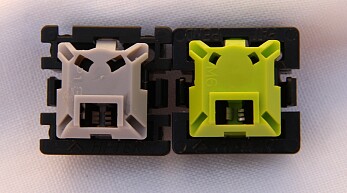 Hi-Tek 725 Switch (Space Invader Switch)
Hi-Tek 725 Switch (Space Invader Switch)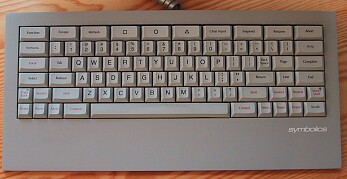 Symbolics keyboard PN 365407 Rev C
Symbolics keyboard PN 365407 Rev C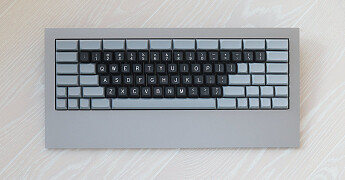 Keymacs, Lisp Machine Keyboard
Keymacs, Lisp Machine Keyboard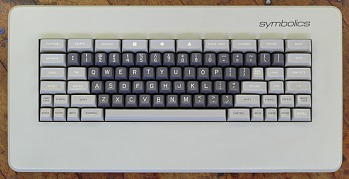 Symbolics Keyboard PN 364000
Symbolics Keyboard PN 364000